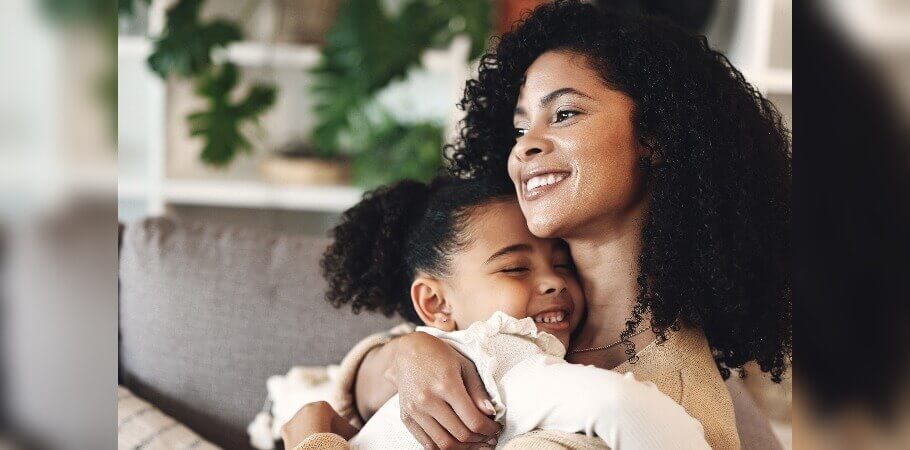Entering into a child custody battle can create tumultuous emotions between co-parents. Losing custody of your child is devastating and is often a cause of concern for parents in this situation. You want to protect your parental rights, and you are scared that the custody arrangements may grant your ex-spouse sole custody, legal or physical. An experienced Fairfax family lawyer at Melone Hatley, P.C. can help you navigate this stressful legal process.
Working with our Fairfax child custody attorneys for your custody and visitation cases, means that you truly have a partner in through this process.
Child Custody in Fairfax

In Virginia, custody is separated into two parts – legal custody and physical custody. Legal custody is the right to make important decisions for your child relating to their health, education, and general welfare. Frequently parents are awarded joint legal custody but this is not always the case.
Physical custody is where the child resides the majority of the time. Most of the time, one parent will have primary physical custody. The court can also award shared custody, where the parties share time on a more equal basis.
Sole custody can be granted that allows for one parent to make primary decisions regarding the care of the child. While the courts usually prefer a co-parenting arrangement, in some situations where one parent is seen to be unfit to make decisions responsibly, the courts can deem the other parent the sole custodian of the child’s welfare.
Before making any determination of custody, the court will consider what is frequently referred to as the “best interests of the child” with factors detailed in Virginia Code Section 20-124.3. To determine what is in the best interests of your child, you should seek out the assistance of an experienced child custody lawyer in Fairfax.
Factors the court will consider include:
The age and physical and mental condition of the child, giving due consideration to the child’s changing developmental needs;
The age and physical and mental condition of each parent;
The relationship existing between each parent and each child, giving due consideration to the positive involvement with the child’s life, the ability to accurately assess and meet the emotional, intellectual, and physical needs of the child;
The needs of the child, giving due consideration to other important relationships of the child, including but not limited to siblings, peers, and extended family members;
The role that each parent has played and will play in the future, in the upbringing and care of the child;
The propensity of each parent to actively support the child’s contact and relationship with the other parent, including whether a parent has unreasonably denied the other parent access to or visitation with the child;
The relative willingness and demonstrated ability of each parent to maintain a close and continuing relationship with the child and the ability of each parent to cooperate in and resolve disputes regarding matters affecting the child;
The reasonable preference of the child, if the court deems the child to be of reasonable intelligence, understanding, age, and experience to express such a preference;
Any history of (i) family abuse as that term is defined in § 16.1-228; (ii) sexual abuse; (iii) child abuse; or (iv) an act of violence, force, or threat as defined in § 19.2-152.7:1 that occurred no earlier than 10 years prior to the date a petition is filed. If the court finds such a history or act, the court may disregard the factors in subdivision 6; and
Such other factors as the court deems necessary and proper to the determination.
Is a Guardian Ad Litem Needed?
Wherever you live in Northern Virginia, whether it’s Fairfax, Alexandria, Arlington, Prince William, Falls Church, Leesburg, Loudoun, or anywhere else, the courts are consistent with family law matters regarding children. All decisions are made in the best interests of the child. This means that in issues of Fairfax child custody, the courts may appoint a guardian ad litem if it serves the best interests of the child.
A guardian ad litem will be appointed in situations where the courts suspect abuse or neglect and the child needs protection. The courts can also appoint a guardian ad litem when the child seeks freedom from their parents.
Fairfax Child Custody
Lawyer Near Me
Child Visitation Rights

Visitation defines when each parent will have custodial time with the child. The court will again consider the factors of code section 20-124.3 before making a determination. Each visitation schedule can vary drastically and will also depend on each parent’s work schedule, the physical distance between the parties’ homes, and the child’s school schedule.
If the parties live in close proximity to one another and the school schedule allows, the court may order a 50/50 shared custodial schedule. This can range from a week-on-week off visitation schedule, or something more like a 2-2-3, where the parties alternate time during the week and exchange weekends.
In some cases, other interested parties may petition for and be awarded visitation. Parties with any legitimate interest can be awarded visitation. Some examples of interested parties include grandparents, stepparents, adult siblings, or other relatives of the child.

Jurisdictional Requirements for Fairfax County

Before initiating a custody and visitation case, it’s important to understand which court has jurisdiction. Virginia has adopted the UCCJEA, or Uniform Child Custody and Jurisdiction Enforcement Act. This statute sets out where jurisdiction of the matter is proper. Before filing a case in Virginia, the petitioning party has to verify there are no prior custody orders and that the child has resided in Virginia for at least 6 months.
There can be situations where Virginia will exercise jurisdiction even when these requirements have not been met, such as in emergency motions. You should consult with a Fairfax child custody lawyer before initiating a custody case to ensure you file in the proper place.
How Child Support Works in Fairfax, Virginia
Child support, like issues of custody, is based upon the best interests of the child, but the courts consider many factors when determining the amount of child support required. The courts can set child support in one of two ways. The first is if the primary physical custodian of the child files for support in court. The second is when the Division of Child Support Enforcement, or DCSE, files an administrative order after the primary physical custodian fills out an application.
The courts rely largely on the guidelines laid out in Virginia Statute § 20-108.1 to determine support. This means they look at the income of both parents and the costs of raising the child, such as health insurance, school, clothing, food, housing, and the like. They then calculate the appropriate amount. It is worth noting that spousal support and child support are two different things, and one spouse may end up needing to pay for both.
While the statute lays out in detail how support should be determined, the courts also have a great deal of leeway in increasing or decreasing this amount. This is why it is so important to seek legal advice from a qualified and experienced Fairfax child custody attorney before tackling the legal issues surrounding child support.
How Do I Get an Emergency Custody Order in Fairfax?
Under certain circumstances, such as when domestic violence or abuse is involved, the courts can order an emergency custody order. This order may place the child with a different custodial parent or in the care of a guardian ad litem while the issues are settled. If you think your child is in danger from your spouse, it is important to seek legal counsel from a family lawyer with years of experience to start the process for an emergency custody order right away.
Benefits of Having a Child Custody Lawyer in Fairfax
Having legal help from a law office serving Fairfax with practice areas in child custody and support can be essential to protecting your parental rights. A strong divorce lawyer can provide you with legal advice to help you get the fair decision you and your child deserve regarding custodianship, child support, and protection. The right attorney can stand up for your rights and negotiate with the attorneys for your ex-spouse, as well as argue your case in court. You love your child, and a Fairfax child custody attorney can help you protect them through your divorce.
Worried About Who Will End Up With Custody of the Child?
At Melone Hatley, we build strong, caring, and compassionate attorney-client relationships from the initial consultation all the way through the divorce process. We are here to be the ally you need when you need an ally the most, offering individualized and tenacious legal representation.
If your spouse has an attorney, we can help balance things out and keep you from being at a disadvantage. We will fight for your rights as a parent, and we will fight to protect your child’s best interests every step of the way. Call our Fairfax child custody lawyers directly or use our contact form to schedule an appointment with a member of our team.


 (703) 995-9900
(703) 995-9900
























